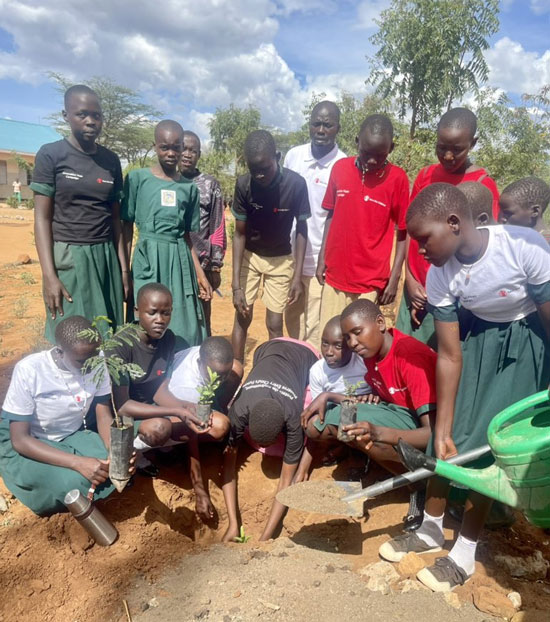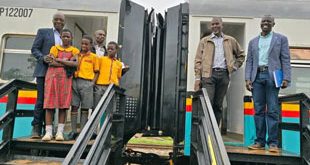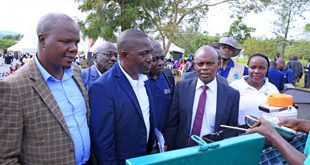
Moroto, Uganda | THE INDEPENDENT | Save the Children has initiated campaigns in the Karamoja region with the aim of bringing together partners and stakeholders to recognize climate change as a child rights crisis that needs to be addressed with children.
Known as the ‘Generation Hope Campaign,’ the campaign is designed to amplify children’s ideas, actions, and lived experiences of climate change and poverty. It aims to unite them with people of all ages as one global voice.
Mark Twinomugisha, the Karamoja Regional Area Manager at Save the Children, emphasized that the climate crisis is creating a child rights crisis that directly poses a significant threat to children’s survival, learning, and protection. He noted that Save the Children plays a unique role in providing a platform where children’s voices are heard, and efforts are made by decision-makers to address the climate and inequality crisis and advance Sustainable Development Goals.
Twinomugisha stated that their main objective is to support children, particularly the most marginalized, who are disproportionately affected by climate change, to be part of the solution and influence decisions made by world and local leaders. He added that children will play a key role in the campaign to combat climate change by influencing policy implementation and formulation at national and local levels as a priority for setting the agenda using media.
As part of their efforts, Save the Children has undertaken various activities such as distributing improved goats to households and providing water for communities to engage in kitchen gardening to combat hunger in the face of drought.
Some pupils in primary schools in Moroto district cited poverty, poor school facilities, distant learning centers, and traditional norms as barriers frustrating their education cycle in the region. They explained that due to poverty in households, girls have been disproportionately affected, as they are often engaged in activities that harm the environment, contributing to climate change.
Elizabeth Akello, a pupil at Acherer Primary School in Loputuk Sub-county, Moroto district, highlighted how poverty in households has led to girls engaging in activities that harm the environment, contributing to climate change. Girls are often tasked with feeding their families due to the scarcity of resources. Climate change has significantly impacted girls in the region.
Parents can no longer grow crops due to drought, forcing girls into early marriages as they are exchanged for cows. Akello appealed to the community to promote tree planting to attract rain and enable food production, which can help parents support their children’s education.
Josephine Lokol, another pupil from Nadunget Primary School, explained how the lack of water in schools has frustrated the girl child’s education. Managing menstrual hygiene becomes a significant challenge, leading to high dropout rates among adolescent girls. Due to food scarcity, girls are compelled to marry at an early age in exchange for cows. She applauded development partners like Save the Children for providing water facilities and reusable pads to support girls’ education.
John Baptist Lokii, Tepeth County member of parliament in Moroto district, highlighted that climate change has affected various sectors, including crop production, livestock rearing, and education. Girls, in particular, have borne the brunt of these effects, being seen as the survival mechanism for their families. He stressed the need to strengthen government policies aimed at improving education and the rights of the girl child in Karamoja.
Albert Lokoru, another member of parliament, observed that forced and early marriages continue to be barriers to girl child education in the region. He urged the government to consider introducing restocking programs in Karamoja to encourage livestock rearing, which could serve as an economic alternative to relying on crop production in the face of unpredictable weather patterns.
****
URN
 The Independent Uganda: You get the Truth we Pay the Price
The Independent Uganda: You get the Truth we Pay the Price


